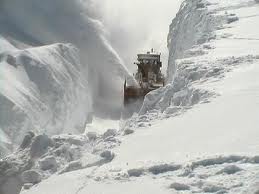Three Day Go-Bags
These are also called Bug-Out bags. You have one for each
member of the family, including pets, in which you have a few essentials and
comfort items that you may need if you were forced to leave your home, or
bug-out, suddenly. For example, the police knock on the door that there is a
stand-off in the neighbourhood and there may be gunfire. Or a fire threatens
your neighbourhood, or a train derails with a dangerous chemical aboard
(remember the Mississauga train derailment?) You don’t want to be running
around trying to gather supplies. You probably couldn’t think straight. It's enough to deal with the stress of the emergency, itself.
These bags would include a 3 day supply of toiletries,
snacks and diversions, and a few articles of clothing as well. You would have
them in an accessible place, like a hall closet or the garage, so you can just
grab and go. I’ve been working on ours, and I find a knapsack holds enough for
24 hours, but if I want to take 72 hours worth of stuff I consider important, I’d
have to use a duffle bag, but then, I’m a bit of a princess. J Find what works for
you. I’ll do a later post with my list of go-bag items.
Three Day Shelter-in-Place
This scenario assumes you cannot leave your home for a few
days to replenish supplies or travel anywhere. A snowstorm or icy conditions
could literally imprison you in your home for a day or two. There could also be
a disruption in food re-supply due to weather or a truckers’ strike. You should
have at least three days of food, water, toiletries and medications on hand to
be self-sufficient, and to avoid the mad rush on supplies in the stores in
advance of an impending storm.
Three Week Emergency
This would be for longer term emergencies and natural
disasters. Remember the Quebec/Ontario ice storm and power failure? It happened
in winter, just down the highway from us. Our girls were young at the time, and
it made me realize I had only enough supplies for the next day or two. I had no
camp stove or any other emergency supplies. Nothing. I began my collection of
camping supplies then, and was able to use it to cook with when the Eastern
Seaboard blackout occurred.
There are extremes in Prepping, as in most things in life.
There are those who won’t prep at all, feeling they are trusting God more than
those who do prepare for emergencies. I addressed this in my earlier post, Why
I am a Prepper. There is the other extreme, usually Americans, (no offence
intended), who encourage you to stockpile weapons and ammunition, build secret
rooms, start gardening, set up rain barrels, and stockpile enough food for
years. Some even build radioactive fallout shelters. That’s your call. But how about if you accomplish
the first two scenario preps, and then you can consider whether or not you want
to take it to the next level?
Long Term—Months to Years
This is also known as TEOTWAWKI or The End Of The World As We
Know It. It would be a major disaster, terrorist attack, E.M.P. (that’s a topic
for another post), government or economic collapse, war, break in food supply, or
famine. There would be mass panic and anarchy. This would probably be when you’d
be thinking you should have listened to the Americans and stockpiled weapons
and ammo. J This
stage of planning requires a methodical approach, a willingness to think “worst-case-scenario”
and a plan to deal with each eventuality. There are great websites about this
out there. Just do a search of Survivalist and Prepping and you’ll see a wide
spectrum of scenarios and approaches.
For this time of prep, you are aiming for a “deep pantry” and it will
require money and a dedicated person to plan it.
What Now?
Focus on the first two scenarios first. Assemble 72-hour
go-bags for each member of your family, and make sure you have enough food,
medications, diapers, formula, etc. if you had to shelter-in-place for three
days. That should keep you busy for a while, gathering supplies. 

